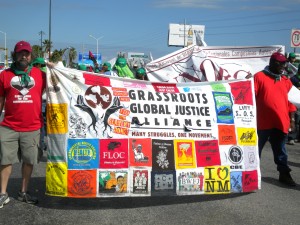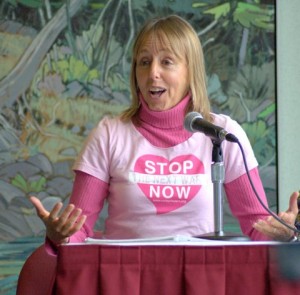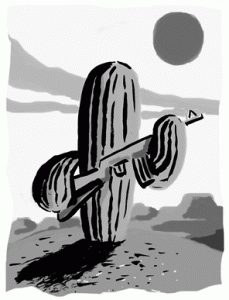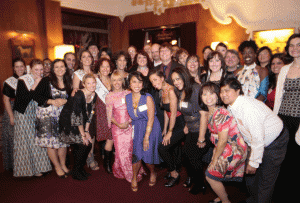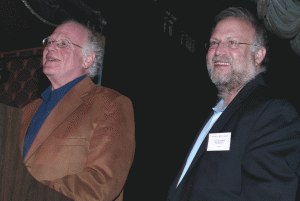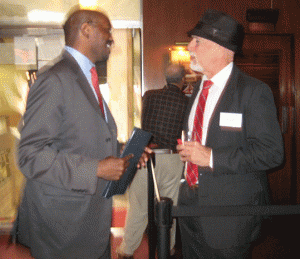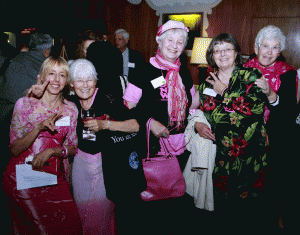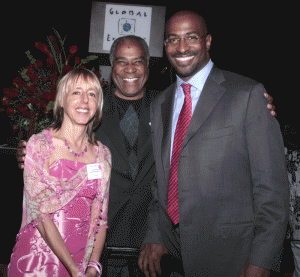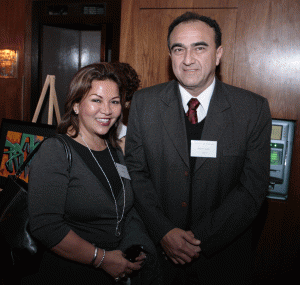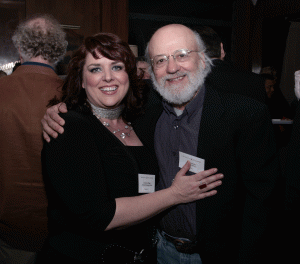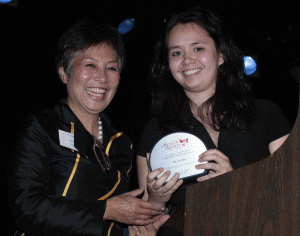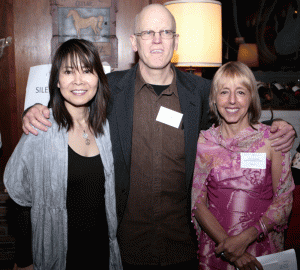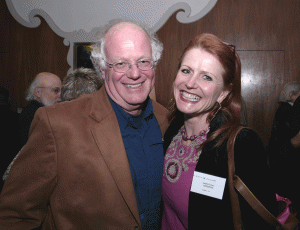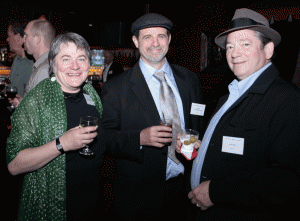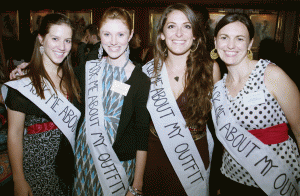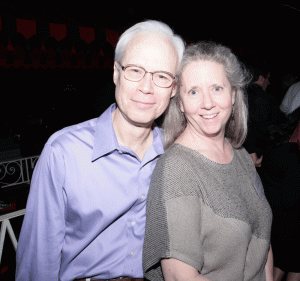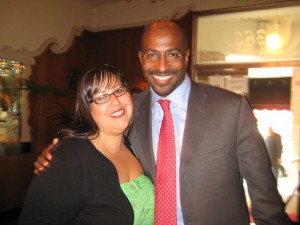 The following was written by Medea Benjamin about the U.S. boat to Gaza’s delayed departure. News just broke with an update about this delay, which you can read below this post.
The following was written by Medea Benjamin about the U.S. boat to Gaza’s delayed departure. News just broke with an update about this delay, which you can read below this post.
—
The 50 passengers and crew on the U.S. boat to Gaza “The Audacity of Hope” have converged in Athens, Greece, ready to head out to sea to join an international fleet of ships that will challenge the Israeli-imposed naval blockade of Gaza. But on Thursday, June 23, when the boat was scheduled to leave its port outside Athens and move closer to an international meeting point, the boat’s owner was suddenly served with a complaint by an unknown individual that the boat was not seaworthy. The captain, convinced that the complaint was bogus, was nevertheless told by Greek authorities that he could not set sail until they did a thorough inspection.
Also on Thursday, Greek port authorities issued an unusual warning to all ship captains to steer clear of the coordinates that correspond with Israel’s naval blockade of Gaza. The advisory said there will be continuous electronic surveillance of the region to “record the movements of ships that will possibly participate in such an action.”
 It appears that the Greek government is bowing to intense pressure from the Israelis—and possibly the U.S. government—to try to block the flotilla. The American passengers on the U.S. boat, called The Audacity of Hope, are pushing the Greek government to do a quick inspection, as they are convinced the ship would pass muster. “The boat we are leasing for this journey has been worked on for months by qualified technicians and is ready to sail,” said organizer and passenger Ann Wright. “We do not believe it needs to be re-inspected, but we are open to the Greek authorities doing this quickly so that there will be no further delays.”
It appears that the Greek government is bowing to intense pressure from the Israelis—and possibly the U.S. government—to try to block the flotilla. The American passengers on the U.S. boat, called The Audacity of Hope, are pushing the Greek government to do a quick inspection, as they are convinced the ship would pass muster. “The boat we are leasing for this journey has been worked on for months by qualified technicians and is ready to sail,” said organizer and passenger Ann Wright. “We do not believe it needs to be re-inspected, but we are open to the Greek authorities doing this quickly so that there will be no further delays.”
The move to block the U.S. boat is just the latest in a flurry of recent activity designed to thwart the flotilla. Israel has publicly stated that it is pressuring countries around the world to stop their citizens from participating. Its pressure on the Turkish government was so intense that the Turkish ship, the Mavi Marmara, the same ship that was so violently attacked last year, recently announced that it would not be joining the flotilla.
Several boats in the international flotilla are now docked in Greece. To its credit, the Greek government has taken a position that the blockade on Gaza must be lifted and many people in the government are sympathetic to the aims of the flotilla. But Greece is being battered by a severe economic crisis that has wreaked havoc within the government itself. The passengers speculate that Israel, which has extensive trade and investment ties with Greece, is callously taking advantage of the economic hardship the Greek people are experiencing right now to put the screws on the Greek government.
They also see the hidden hand of the United States behind this, as the Obama administration has been publicly railing against the flotilla, calling it a “provocative act” against Israel and issuing harsh travel warnings to Americans against any attempts to reach Gaza by boat. The U.S. passengers speculate that the Obama Administration is using economic blackmail on the Greek government. Greece’s economic and political crisis is a result of extreme austerity measures imposed by the European Union and the largely U.S.-controlled International Monetary Fund (IMF). The United States may well be using its leverage at the IMF over the implementation of an ongoing bailout of European banks with massive Greek debts to compel the Greek government to block the U.S. boat.
“Greece is not going to be able to meet the targets that it is pledging to the IMF and the European authorities. In this situation the IMF and therefore the U.S. government will have enormous leverage because these institutions will decide what will be acceptable benchmarks for Greece to receive future tranches of IMF/EU funding,” said Mark Weisbrot, Co-Director of the Center for Economic and Policy Research in Washington DC.
Passengers on the U.S. boat are asking Greek government officials to clarify the situation. “Is our boat being blocked from leaving Greece because of an anonymous request of a private citizen concerning the seaworthiness of the ship, a situation could be easily dealt with by a quick inspection, or is this a political decision by the Greek government in response to economic pressure?,” asked passenger and political analyst Robert Naiman.
In any event, the flotilla participants remain determined to set sail. “We have overcome many roadblocks along the way and we will overcome this one as well,” said passenger and CODEPINK organizer Ridgely Fuller. “We might not have the economic clout of the U.S. and Israeli governments, but we have morality and the support of the Greek people on our side.”
—
A Press Release issued today offers this update on the situation:
Israeli Group Responsible for Delaying US Boat; Passengers Confident Greek Government Will Allow Boat to Sail.
Passengers on the U.S. Boat to Gaza, The Audacity of Hope, said news reports that an Israeli “lawfare” group, Shurat HaDin, is behind the complaint delaying the departure of the U.S. boat from Greece substantiate the Americans’ assertions that the complaint is frivolous. The passengers expressed confidence that Greek authorities will now quickly dispense with the complaint and allow The Audacity of Hope to sail.
On Sunday, June 26, the Jerusalem Post reported:
Sources in the Shurat HaDin (Israel Law Center) on Sunday took responsibility for lodging an anonymous civil complaint against the American-flagged ship, The Audacity of Hope, which is a part of the flotilla expected to sail towards Gaza later this week. The Israeli group is known for making frivolous legal complaints against the Gaza Freedom Flotilla.
Ann Wright, a Global Exchange board member and organizer and passenger on the U.S. boat, had this to say:
We reiterate that the boat we are leasing for this journey, after it’s refitting for the voyage to Gaza, was surveyed by a professional surveyor and successfully completed its sea trials. There is no reason for any further delays on this matter, we are ready to sail.
—
Follow the flotilla on this blog, at www.codepink.org /pinkonflotilla and www.ustogaza.org.

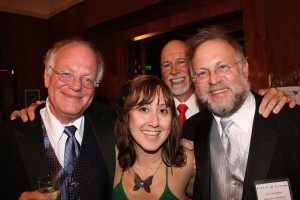
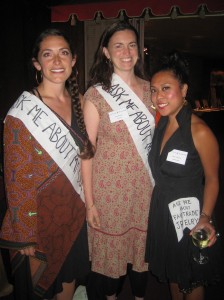
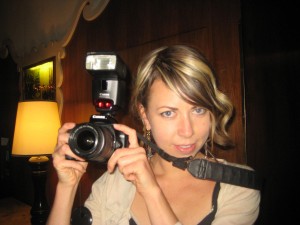
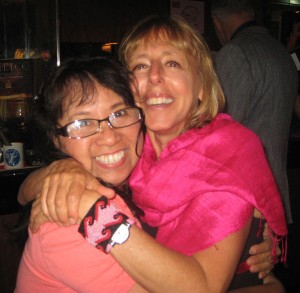
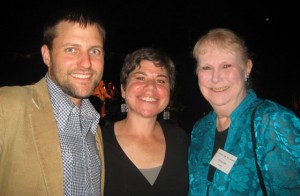


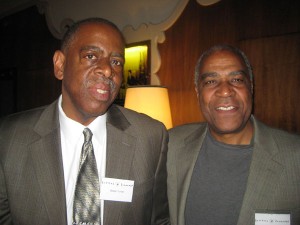
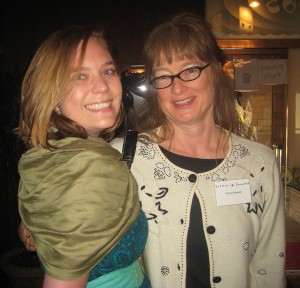
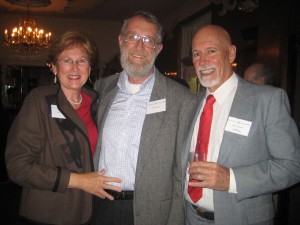
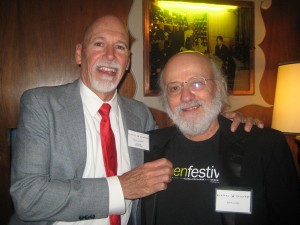
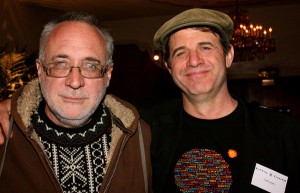
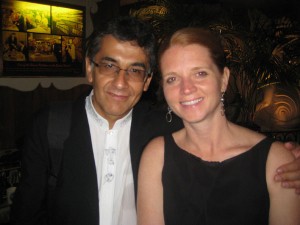
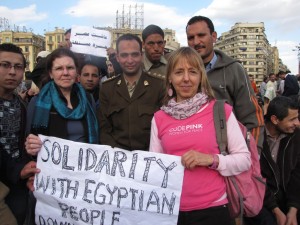 Egyptian protesters have poured into the streets this week calling for President Hosni Mubarak to step down by Friday, the people’s deadline. Global Exchange stands in solidarity with the people of Egypt, and we’re calling on the US Government to support the peaceful and immediate end to the Mubarak regime.
Egyptian protesters have poured into the streets this week calling for President Hosni Mubarak to step down by Friday, the people’s deadline. Global Exchange stands in solidarity with the people of Egypt, and we’re calling on the US Government to support the peaceful and immediate end to the Mubarak regime.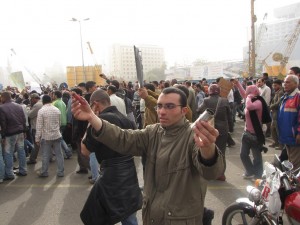 Medea has been emailing updates when she can. Since her earlier post
Medea has been emailing updates when she can. Since her earlier post 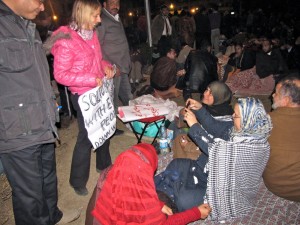 I couldn’t believe that after today’s attacks, there were still women in the square who planned to spend the night. A group of young women ran up to us and started hugging and kissing us. “You don’t know what your presence means to us,” one of the students said. “Please tell Obama that we need him to do more to push Mubarak to go NOW, before more of us get killed.”
I couldn’t believe that after today’s attacks, there were still women in the square who planned to spend the night. A group of young women ran up to us and started hugging and kissing us. “You don’t know what your presence means to us,” one of the students said. “Please tell Obama that we need him to do more to push Mubarak to go NOW, before more of us get killed.”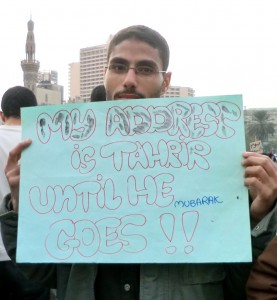 From Medea’s press release today:
From Medea’s press release today: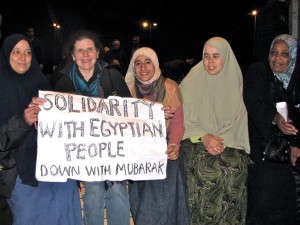 The Time is Now to Show Your Support!
The Time is Now to Show Your Support!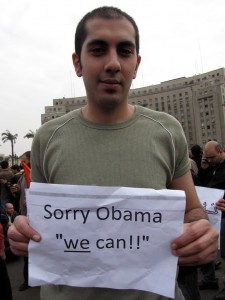 Here are ways you can stand in solidarity with the Egyptian people
Here are ways you can stand in solidarity with the Egyptian people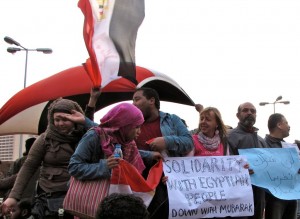 enjamin is cofounder of CODEPINK and Global Exchange. She can be reached for interviews in Cairo at (20) 107148431.
enjamin is cofounder of CODEPINK and Global Exchange. She can be reached for interviews in Cairo at (20) 107148431.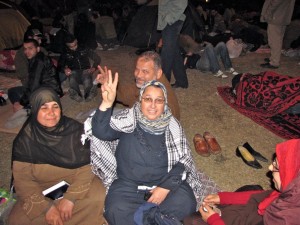 The main square in Cairo—Tahrir Square—is the headquarters of the revolution. Hundreds of thousands of people clogged the square today, and thousands have been camping out all week and insist they will stay until Mubarak leaves. They are young and old, mostly men but a surprising number of women and children. They are professionals and farmers, well off and poor, urban and rural, PhDs and barely literate. Some are long-time political activists who have been jailed by the regime; most have never engaged in anything political.
The main square in Cairo—Tahrir Square—is the headquarters of the revolution. Hundreds of thousands of people clogged the square today, and thousands have been camping out all week and insist they will stay until Mubarak leaves. They are young and old, mostly men but a surprising number of women and children. They are professionals and farmers, well off and poor, urban and rural, PhDs and barely literate. Some are long-time political activists who have been jailed by the regime; most have never engaged in anything political.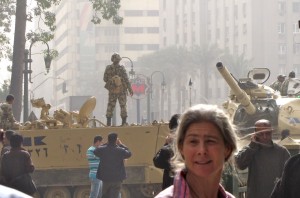 Army tanks line the entrance to the square, but a cordon of civilians separate the army from the protesters. Civilians also set up a 24-hour security detail to check people coming in—men frisk the men to make sure they have no weapons; women inspect the women’s belongings. The young people have organized clean-up crews, collecting garbage, sweeping, holding signs encouraging people to put their trash in the bins. A group of volunteer health workers in white coats walk around taking people’s blood pressure and checking up on their health.
Army tanks line the entrance to the square, but a cordon of civilians separate the army from the protesters. Civilians also set up a 24-hour security detail to check people coming in—men frisk the men to make sure they have no weapons; women inspect the women’s belongings. The young people have organized clean-up crews, collecting garbage, sweeping, holding signs encouraging people to put their trash in the bins. A group of volunteer health workers in white coats walk around taking people’s blood pressure and checking up on their health.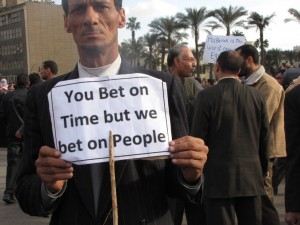 Circles of people gather to recite poetry, play music or sing. Others march round and round chanting “Down with Mubarak, down with Mubarak.” They hold handmade signs with all kinds of slogans. While mostly in Arabic, some signs in English say things like “Christians and Muslims, together against Mubarak” and “USA, Stop supporting Mubarak; We don’t wanna hate the USA.”
Circles of people gather to recite poetry, play music or sing. Others march round and round chanting “Down with Mubarak, down with Mubarak.” They hold handmade signs with all kinds of slogans. While mostly in Arabic, some signs in English say things like “Christians and Muslims, together against Mubarak” and “USA, Stop supporting Mubarak; We don’t wanna hate the USA.”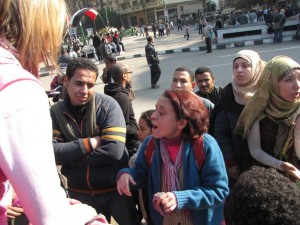 Everywhere, people are engaged in animated political discussions about their nation’s future. Some support Nobel Peace Prize winner Mohammad El Baradei as an interim leader. Others believe he is too far removed from the people, since he has lived abroad for 30 years, and they prefer a collective, interim government to write a new constitution and hold free and fair elections. Religious men with long beards, aligned with the Muslim Brotherhood, argue that Egypt needs a Muslim government; others disagree vehemently, insisting on a secular state. The discussions are passionate, but also friendly and respectful.
Everywhere, people are engaged in animated political discussions about their nation’s future. Some support Nobel Peace Prize winner Mohammad El Baradei as an interim leader. Others believe he is too far removed from the people, since he has lived abroad for 30 years, and they prefer a collective, interim government to write a new constitution and hold free and fair elections. Religious men with long beards, aligned with the Muslim Brotherhood, argue that Egypt needs a Muslim government; others disagree vehemently, insisting on a secular state. The discussions are passionate, but also friendly and respectful.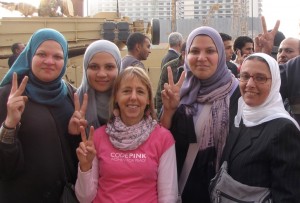 No matter how the situation in Egypt unfolds, a new nation has been born. Ordinary people are doing extraordinary things. They have overcome their fears and regained their dignity. They are writing their own destiny.
No matter how the situation in Egypt unfolds, a new nation has been born. Ordinary people are doing extraordinary things. They have overcome their fears and regained their dignity. They are writing their own destiny.